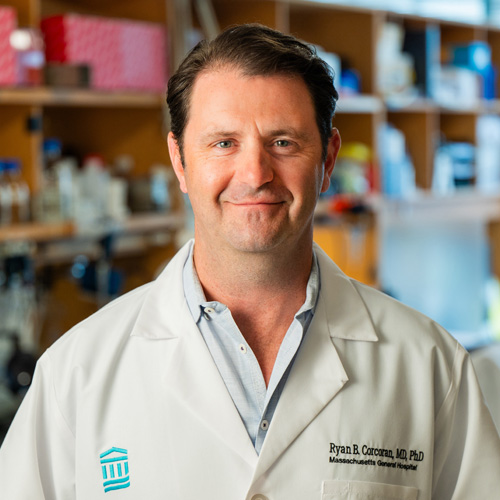-
- Find Care
-
- Visitor Information
- Find a Location
- Shuttles
- Visitor Policies
-
-
- Our Virtual Care Options
- Virtual Urgent Care
- Virtual Visits for Primary & Specialty Care
- Online Second Opinions
- Participate in Research
-
- Contact us
-
- For Innovators
- Commercialization Guide for Innovators
-
-
- Research News
- Alzheimer's Disease
- Artificial Intelligence
-
- Overview
-
- Overview
- Getting Started
- New to Mass General Brigham
- International Patient Services
- What Is Patient Gateway?
- Planning Your Visit
- Find a Doctor (opens link in new tab)
- Appointments
- Patient Resources
- Health & Wellness
- Flu, COVID-19, & RSV
- Billing & Insurance
- Financial Assistance
- Medicare and MassHealth ACOs
- Participate in Research
- Educational Resources
- Visitor Information
- Find a Location
- Shuttles
- Visitor Policies
- Find Care
-
- Overview
- Our Virtual Care Options
- Virtual Urgent Care
- Virtual Visits for Primary & Specialty Care
- Online Second Opinions
-
- Overview
- Participate in Research
-
- Overview
- About Innovation
- About
- Team
- News
- For Industry
- Venture Capital and Investments
- World Medical Innovation Forum (opens link in new tab)
- Featured Licensing Opportunities
- For Innovators
- Commercialization Guide for Innovators
- Contact us
-
- Overview
- Information for Researchers
- Compliance Office
- Research Cores
- Clinical Trials
- Advisory Services
- Featured Research
- Two Centuries of Breakthroughs
- Advances in Motion (opens link in new tab)
- Brigham on a Mission (opens link in new tab)
- Gene and Cell Therapy Institute
- Research News
- Alzheimer's Disease
- Artificial Intelligence
-
- Overview
-
- Overview
- Residency & fellowship programs
- Brigham and Women's Hospital
- Massachusetts General Hospital
- Mass Eye and Ear
- Newton-Wellesley Hospital
- Salem Hospital
- Integrated Mass General Brigham Programs
- Centers of Expertise
- Global & Community Health
- Health Policy & Management
- Healthcare Quality & Patient Safey
- Medical Education
- For trainees
- Prospective trainees
- Incoming trainees
- Current trainees
- Continuing Professional Development
Mass General Brigham Helps Develop Cancer Blood Test to Detect Remaining Cancer After Surgery

Research-driven cancer care sets Mass General Brigham apart. Our physician-scientists—in the lab, in the clinic, and at the bedside—work tirelessly to understand the effects of debilitating diseases, all to improve patient care.
One example of this work are new cancer blood tests to check for remaining cancer after surgery that Mass General Brigham researchers helped develop.
Ryan B. Corcoran, MD, PhD, director of the Tucker Gosnell Center for Gastrointestinal Cancers at Mass General Brigham Cancer Institute, and Aparna Parikh, MD, medical director of the Center for Young Adult Colorectal Cancer at Mass General Brigham Cancer Institute explain the science behind blood testing for cancer recurrence and how doctors are using it along with other diagnostic procedures to find cancer that may have returned and guide treatment.
What is cancer recurrence?
Cancer recurrence is when cancer cells that were not completely removed or treated, come back after surgery, chemotherapy, or radiation. The cancer may come back where it first started, which is local recurrence, or in a different part of the body. Even if it comes back in a different part of the body, it is still named after the part of the body where it started. Cancer can return weeks or years after treatment.
How will I be checked for cancer recurrence?
Your cancer care team will develop a personalized, long-term plan to monitor for cancer recurrence. You may have physical exams, blood tests, imaging tests like CT scans and MRIs, and possibly even new cancer blood tests that look for tiny amounts of remaining cancer cells called minimal residual disease (MRD).
What is minimal residual disease (MRD)?
MRD is when a small number of cancer cells, too small to be visible, remain in the body after treatment. MRD detection can help predict whether a patient is likely to have cancer recurrence. Detection of MRD typically requires highly sensitive lab tests that can find traces of cancer DNA in the blood, often among a background of thousands or millions of normal DNA fragments. Checking for MRD helps your doctor plan your treatment, find out how well treatment is working, modify the surveillance plan, or make a prognosis.
How are these cancer blood tests different from other lab tests?
The process is similar. Your doctor will take a sample of your blood in the same way it is collected for regular blood work. However, MRD blood tests are different because they look for rare, tiny pieces of tumor DNA in your blood that are released from cancer cells.
Unlike regular blood tests and imaging studies, this analysis can detect the presence of a small amount of remaining cancer cells more accurately and reliably. In fact, studies show that these tests can often detect residual cancer four to eight months before a standard CT scan might. This allows doctors to adjust your care plan sooner and try treatments when there is a better chance for a cure. This plan will include regular check-ups, and repeat blood tests can help determine whether a therapy is effective. Researchers are studying whether MRD blood tests can also help avoid unnecessary treatments for patients who don’t have MRD.
What happens with the remaining cancer cells?
If an MRD blood test detects the presence of residual cancer cells after surgery, your cancer care team may recommend additional therapy to help eradicate the remaining cancer and increase the chance of cure. How this blood test might affect your treatment options depends on your type of cancer and other clinical factors and would involve a personalized discussion with your cancer care team.
Do these new cancer blood tests work for every type of cancer?
These blood tests can be effective for many cancer types, including colorectal, breast, lung, and ovarian cancer. Scientists, including those at Mass General Brigham, are studying how well these tests work for other types of cancer as well.
Blood tests to detect MRD are not always indicated for every patient. Whether MRD blood testing should be performed may also depend on a patient’s specific circumstances. Your cancer care team can help you decide if this test is right for your condition.
How soon after surgery am I eligible for this new cancer blood test?
Your first blood test would usually be one to three months after surgery. After that, the test is repeated every few months during your clinic visits for the first few years, which is when most cancer recurrences happen. Your doctor will decide how often you need the test based on your situation.
Is this cancer blood test covered by insurance?
Many insurance plans cover MRD blood tests for certain cancers, such as colorectal cancer. But because every insurance plan is different, you should check with your oncologist and insurance provider before the test is ordered.
Are there any new cancer tests coming out that I should consider?
Researchers at Mass General Brigham and around the world are studying MRD and looking for ways to detect it sooner and more accurately. They are also studying blood tests that might be used to detect cancer early in otherwise healthy patients. Many new tests are being studied in clinical trials right now.

Contributor
